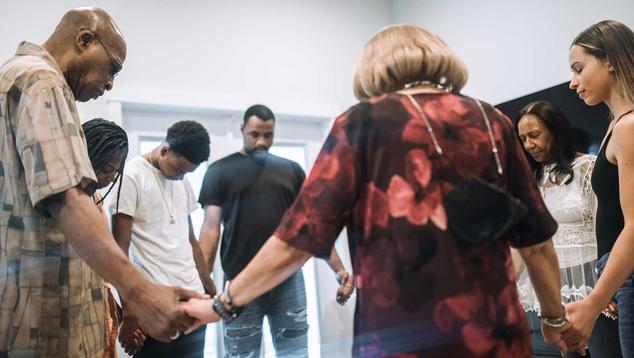Over the past 20 years, countries around the world have aimed education, research and policy at combating the world's growing mental health crisis. While many strategies have been examined, the relationship between mental health and spirituality, religion, or faith has been largely underexplored.
Faith and Wellness: The Worldwide Connection Between Spirituality & Wellbeing, a new report from Gallup and Radiant Foundation, uncovers fresh insights into the relationship between religion/spirituality and wellbeing. It also adds to the existing body of research finding that people who are religious often have better wellbeing than those who are not.
Key Findings
Gallup World Poll data from 2012-2022 find, on a number of wellbeing measures, that people who are religious have better wellbeing than people who are not.
An analysis of World Poll data collected over 10 years in 152 countries and territories, which includes interviews with approximately 1.5 million people, shows a strong association between religiosity and wellbeing. Gallup indexes that measure positive emotions, social life, optimism and community basics show a positive relationship between religiosity -- defined by the self-expressed importance of religion in one’s daily life -- and wellbeing outcomes.
Each one-point difference in index scores between religious and nonreligious people represents an effect for an estimated 40 million adults worldwide. For example, the four-point difference between religious and nonreligious people on the Positive Experience Index means that an estimated 160 million more adults worldwide have positive experiences than would be the case if those adults were not religious.
On other Gallup global measures, there is no relationship between religiosity and wellbeing, and in some cases the relationship is negative, such that people who are more religious tend to have worse scores. For example, at the individual level, religious people may attribute negative events in their lives, such as illness, to a higher power abandoning them and thus experience more negative emotions than a nonreligious person.
The relationship between religiosity and wellbeing outcomes is complex and sometimes differs by religiosity at the country level.
While the scholarship and analysis detailed in the report illustrate that there is often a positive relationship between spirituality and wellbeing, the relationship is complex and nuanced.
In the most religious or moderately religious countries -- where upward of 66% of the population says religion is important to them -- there are stronger positive relationships between religiosity and wellbeing. Countries that are categorized as less religious are often wealthier, and their residents score higher on wellbeing, regardless of religiosity or economic influences.
Those who say religion is important to them see greater individual benefits through social and civic connections.
Analysis of 2012-2022 World Poll data shows that religious people have meaningfully higher scores than nonreligious people on Gallup’s Social Life Index, which assesses people’s social support structures.
This finding demonstrates that globally, an estimated 200 million additional religious people are satisfied with opportunities to meet people than would be true if those people were not religious, and approximately 100 million more people who identify as religious have others they can turn to in times of need than would be the case if they were not religious.
Similarly, the spirituality-wellbeing link is evident in Gallup’s Civic Engagement Index, which assesses people’s inclination to volunteer their time and to assist others. Such civically oriented behaviors can also lead to positive wellbeing outcomes. Although differences vary by region, religious people globally score better than nonreligious people, averaging 4.8 points higher.
Northern America has the largest difference (10.3 points) between religious and nonreligious groups on Gallup’s Civic Engagement Index, despite the decline in religious identification in the U.S. Gallup data show fewer Americans have a religious preference or identity or regularly attend religious services now than in the past.
Implications
This Gallup-Radiant report explores the apparent paradox of declining religious identification in many parts of the world, as scholarship uncovers the potentially positive effects of faith on wellbeing in a time of heightened negative emotions.
Factors that may be behind this seeming paradox are lack of awareness of the faith-wellbeing relationship; generational influences; “othering” -- viewing/treating a person or group of people differently from oneself; religious polarization; and the evolution of religious practice. In addition, diminished freedom of religion in parts of the world, especially for religious minorities, may affect the trajectory of religious identification.
While most of this Gallup World Poll analysis uses long-standing trends on the importance of religion in daily life, a new World Poll item, asked on behalf of the Wellbeing for Planet Earth Foundation in 2021, finds a measure of spirituality also positively related to higher wellbeing globally.
Considering the global rise of negative experiences and the growing mental health crisis, a multifaceted solution is necessary. The role of religion and spirituality can be considered as a way to help combat the mental health crisis. Leaders who are looking for solutions amid this crisis can consider the opportunities that religion and spirituality can offer to a range of institutions, including workplaces.
To stay up to date with the latest Gallup News insights and updates, follow us on X.
For complete methodology and specific survey dates, please review Gallup's Country Data Set details.
Learn more about how the Gallup World Poll works.




